Gourmet: Episode 23
by javabeans
As though to make up for the lack in recent episodes, there’s lots and lots of food in this episode. And that means lots and lots of food analysis! Mmm, my favorite kind of analysis. Apart from actually eating.
SONG OF THE DAY
Gourmet OST – “그대 좋아하는 계절이 와요” (The season you like is coming) by Na Yoon-kwon
[ Download ]
Audio clip: Adobe Flash Player (version 9 or above) is required to play this audio clip. Download the latest version here. You also need to have JavaScript enabled in your browser.
EPISODE 23 RECAP
Chef Oh’s funeral. Both brothers are stricken with grief, but Sung-chan seems to be more lost in his than his brother. Perhaps the only one more aggrieved than Sung-chan is the elderly Ja-woon, who laments the passing of his friend and tries to attack Yoon for betraying Chef Oh and Oonamjeong. Yoon, on the other hand, is sad but doesn’t seem particularly regretful of his actions.
When Matsumoto and Kimura make an appearance, Sung-chan steps up and tells them they’re not welcome. With uncharacteristic rudeness and barely controlled anger (Sung-chan is usually so polite even when he’s upset), he demands they leave. Bong-joo steps in, calmer but expressing the same sentiment. The Japanese men leave.
In the funeral procession that follows, Sung-chan is overwhelmed by his memories, flashing us back to scenes of his youth. Ironically (?), he’d been introduced to Chef Oh at his biological father’s funeral — it’s kind of oddly poignant that his relationship with Chef Oh is bookended by funerals.
Bong-joo also thinks back of times spent with his father, but his are more turbulent memories — of them fighting, of him dismissing his father’s opinions and barreling forward with his franchise plans.
Out of respect for the funeral party, Matsumoto remains at a distance, watching the events from his car.
Bong-joo contemplates the jar Chef Oh had given him before dying, which contains the original jang (soybean-based sauce) upon which Oonamjeong was founded. (He’d asked his sons to preserve this taste, and ergo Oonamjeong’s legacy.)
Joo-hee tries to console Bong-joo, who says with bitter self-recrimination: “What have I done? I destroyed what Father worked his whole life for. Because of my greed.” She tells him, “It’s not your fault.” There were other people scheming behind their backs and he can’t be held responsible for them. And then she cries, assailed by her own feelings of guilt, telling him that she’s sorry because it was HER father who betrayed them.
That night, Sung-chan reminds Bong-joo of their father’s last request (as though Bong-joo would forget!). Throwing his support behind his brother, Sung-chan tells him that to recover Oonamjeong, “I’ll do everything you say. I can do anything.”
But Bong-joo answers that he doesn’t have it in him — it’s all over. There’s nothing they can do now. Sung-chan insists, “I have nothing to lose.” If Bong-joo would join him in working toward that goal… Bong-joo cuts him off in a resigned tone: “They tied my hands and feet and took away my authority. I have nothing now — what more can I do? If I were to join you, what can we do? Don’t be stubborn and invite pain. Let’s just end this.”
As Bong-joo walks away, Sung-chan calls out, a bit like a stubborn child, “I can’t do that. I can’t give up. I’ll never give up.”
On the other side of the deal, Min-woo meets with Kimura to ask for his support in being named the new head of Oonamjeong. Obviously he thought he would be a shoo-in for the position once Bong-joo was ousted, which is why he aided Matsumoto. However, Kimura answers that Matsumoto has another man in consideration: Sung-chan. This does not go over well with Min-woo. (Can you just imagine Min-woo’s frustration? He goes through all this trouble and the end result is exactly the same as the beginning — only now he has added guilt and the stamp of betrayal tacked on like some kind of evil villain tax.) Ironically, Matsumoto cites Min-woo’s disloyalty as the reason for cutting him loose; oh, Catch-22, how it loves to bite you in the ass.
The takeover begins. Yoon assures his worried staff that they will not be let go; the management has changed, but the kitchen will be run just as it always has. However, Ja-woon interferes this speech, deriding Yoon for selling out and being a big stinkin’ traitor. Yoon orders his men to escort Ja-woon away, and threatens to call the police on him the next time he shows his face here. He is officially persona non grata at Oonamjeong.
Sung-chan arrives in the midst of the commotion and steps in, indignant to see Ja-woon being treated with such disrespect. Bong-joo walks by, and Sung-chan asks him if he can witness this and still remain detached, still be willing to give up without more of a fight. Bong-joo passes by without a word.
Sung-chan shows Joo-hee the photo of Chef Oh with Matsumoto, asking if she knows anything about it. Joo-hee answers that Matsumoto used to work at Oonamjeong as a chef when he was younger, and they go to Ja-woon to learn more about his days training there.
Ja-woon calls Matsumoto crazy — not insane, but rather too ambitious, frightening. Chef Oh looked upon Matsumoto’s passion with pride, that a non-Korean would take such interest in Oonamjeong’s jang and kimchi. However, eventually Chef Oh finally realized Matsumoto’s true character, recognizing that their philosophies clashed. His stance (and therefore Oonamjeong’s) is that food’s primary purpose is to bring pleasure to the preparer and the recipient.
However, Matsumoto once used poison in food to enhance its flavor (a la Min-woo in Episode 3), and injured someone. Chef Oh had wanted to protect his protégé, but Matsumoto ended up leaving.
Matsumoto claims the promise Sung-chan had made to cook him the special freshwater shrimp stew — pretty ballsy of him to make that request knowing that Sung-chan hates him now. But Sung-chan isn’t one to back down from a promise, so he prepares the dish. Matsumoto lays down his spoon after one taste, noting that there was no personal touch put into the dish.
Sung-chan goes back into the kitchen for a second effort, angry but determined to give Matsumoto no reason for complaint. Only this time, Matsumoto points out, the emotion put into the dish was all anger. Well, at least he’s halfway there!
Sung-chan challenges Matsumoto: “Instead of the dish being prepared wrong, couldn’t it be that the diner isn’t prepared to eat it? You were like this in the past, too. You didn’t eat this when my father had prepared it with genuine warmth.” Matsumoto answers that he didn’t eat the stew when it was cooked by Chef Oh, and admits that his life back then had been characterized by mismanaged ambition.
Furthermore, he lays down the gauntlet: “If Oonamjeong can succeed better than I can, prove it by skill. I’m telling you to beat me. I’ve gotten to where I am on skill. If you’re so confident, let’s see who’s the best man to bring Korean cuisine to the world.”
It’s the ultimate competition. If Oonamjeong wins, Matsumoto will step back. If Matsumoto wins, Sung-chan joins Matsumoto.
Bong-joo packs to leave Oonamjeong. His attitude is one of resigned wistfulness, and he apologizes to Joo-hee for hurting her. He’s even regained his big bro affection for Sung-chan… at least, until Min-woo steps in.
This brotherly reconciliation is short-lived because Min-woo stirs the pot again, embittered at being cut out of the loop once more. He tells Bong-joo that Matsumoto is naming Sung-chan the new head of the restaurant — and what’s more, this was Sung-chan’s plan from the start. They’d been scheming together all this while.
Therefore, when Sung-chan approaches Bong-joo for help in his upcoming challenge with Matsumoto, Bong-joo has been thoroughly tainted by Min-woo’s poisonous thoughts, and is back to being pissed off.
Stunned at this sudden turnaround, Sung-chan pleads with his brother, saying they need to work together to win, but Bong-joo is not interested. Sung-chan: “Fine, I’ll win on my own, without you.” He tells Bong-joo, “I’ll wait for you to come back.”
Thus Sung-chan begins research without his brother, working frantically with his team to prove himself in this last, crucial battle.
With the battle impending, Sung-chan calls Bong-joo one last time, asking for help. He sounds like a scared young boy as he says:
“Hyung, it’s tomorrow. I’m struggling a lot right now. I’m nervous and I have no confidence. Hyung, please help me. Guide me like you did when I first came to Oonamjeong, all alone and struggling. I’ll wait for you.”
He then approaches Min-woo to ask him back to the team, too. Min-woo, having burned all his bridges and left Oonamjeong, blusters that he has a lot of opportunities to go elswhere, but Sung-chan cuts through the BS: “I know that Oonamjeong means as much to you as it does to me.” He reminds him that Oonamjeong is where they trained, where they cultivated their dreams. All the crap that happened was just because of their personal greed, but “our passion and feelings toward Oonamjeong and cooking are all the same.” He says, “I think of this as the last chance to repay the debt to Chef Oh.”
Battle. The format is thus: The two teams, each comprising four chefs, will compete in a timed battle to cook an appetizer, two entrees, and a dessert course. The theme is true Korean cuisine. A panel of international food critics (including Ted Oh) will judge based on three criteria: creativity, market appeal, and taste.
They start with the appetizer, both teams doing a twist on traditional Korean food. The Japanese team shows its formidable talents early, impressing everyone with their creative incorporation of Japanese cooking techniques and ingredients with thoroughly Korean elements. I’ll discuss more below.
Meanwhile, Bong-joo visits his father’s gravesite. Ja-woon thinks Bong-joo should be part of the Oonamjeong team, and says just the right things to get him feeling guilty — he addresses Chef Oh, asking, “Do you know your son left Oonamjeong behind and ran away?”
Thus Bong-joo thinks back to Sung-chan’s plea for help and broods, both wanting to help and wanting to stay far away.
The appetizer round scores are predictably high for both teams, but Matsumoto just edges out Oonamjeong. The Japanese earns perfect scores all across the board, getting a 10-10-10 for creativity, market ability, and taste. Oonamjeong, on the other hand, scores a 10-10-9.
Ted Oh explains that the Japanese use of particular ingredients were just a touch better than Oonamjeong (again, will explain more below).
Sung-chan’s team tries to rally their spirits going into the entrée round, but this is a crushing blow to Sung-chan’s confidence, particularly since he’s already feeling vulnerable and alone. On top of that, he starts to feel the weight of possibly losing, and what it means to be forced to work for Matsumoto. He starts sweating, breathing irregularly, and he drops his knife, about to choke (figuratively, but probably also literally).
And of COURSE, at that very moment, Bong-joo walks in.
(I can tell you, that was a turn I knew would happen from the top of the episode, but it was still a great moment.)
FOOD FOR THOUGHT
First off, you’ve got to take this food battle — as we did the other food battles — with a grain of salt, suspend your disbelief, go with the flow, etc. I think the arguments made about each food item are a little simplistic, but since we’re using the food as metaphors, it’s probably best not to dwell on food realism.
Specifically, I’m referring to the Japanese team’s dishes, above. This challenge doesn’t really have strict rules, just a general theme that they will be showcasing genuine Korean style food that would appeal to a world market, since that is what is at stake: the winner will gain control of Oonamjeong and the right to take it global (or not).
To this end, Matsumoto’s team mixes in pickled shrimp (a typical Korean ingredient) into their salad sauce, which causes murmurs to erupt in the audience, supposedly showing us how stunned everyone is that a Japanese cook would use such an “unconventional” ingredient. They combine this with ground natto (Japanese style fermented soybean) and use those to compose an asparagus-fish salad, with a side of nurungji joohk, which is a porridge made from the burnt crust of rice found at the bottom of a stone bowl.
The Korean audience is shocked that a Japanese person could understand Korean cooking so well! — and threatened. This strikes me as ridiculous and silly, because their reaction is one of purist affront. (How dare the foreigner understand Korean cooking better than most Koreans?) And how could they be so innovative as to mix Korean ingredients with Japanese? Have they never heard of fusion cooking? Once again, I believe nationalism is a key component of this perceived Matsumoto threat. Had this been any other nationality, the attitudes toward fusion cooking might likely have been much more forgiving. But the Japanese co-opting something Korean — egads, no!
Ultimately, I don’t think Gourmet is making a nationalist statement — I think they’re telling a story in an overly simplistic manner that unfortunately gets distilled into extremes. Factor in Korea’s turbulent history with Japan, and you get some uncomfortable underlying messages — whether intended or not. I rather think they’re unintended, but that’s too bad anyway.
(This is why I think a lot of Korea-Japan collaborations take great pains to be overly friendly and enthusiastic toward the other party, which results in oversimplified results on the other extreme. But I’ll go ahead and say that I’m more comfortable with that over-positive approach, even if it’s Pollyanna-ish, because it shows a progressive movement rather than a regressive one.)
But back to the food, because there’s one more important point to be made. Sung-chan’s appetizers are an acorn jelly salad (mmm) prepared with a type of unripened kimchi, with a side of spinach doenjang (soybean paste) porridge. While these dishes are excellently made and earn favor from the judges, they are found to fall short of the Japanese team, which has also used a special type of vinegar made of rice wine (makgulli). Not only is this an especially fine vinegar, Matsumoto gets brownie points for cultural relevance in using an extra-Korean-y ingredient in the makgulli component. (This is what I mean by oversimplified: traditional “Korean-y” ingredients = extra points. Fusion efforts = dangerous threat.)
But this turns out to be the same rare vinegar Bong-joo had used to win one of the early challenges. Sung-chan looks like he wants to kick himself for forgetting to go the extra step to procure ingredients like this — plain good cooking skills aren’t enough with the stakes so high — and this suggests that Bong-joo’s presence would have been a benefit. The message is clear: Had Bong-joo been present, Oonamjeong’s team would not have forgotten ingredients like these, hence they would not have been losing by one point.
Therefore, we can understand Sung-chan’s near-meltdown at the end with a little more depth. It’s not merely a chef choking in the moment of competition — it’s him realizing that he’s really in over his head, that his brother has abandoned him, that the only way he can win is with Bong-joo by his side… and then Bong-joo walks in. Day, you are now saved!
RELATED POSTS
Tags: Gourmet, Kim Rae-won, Nam Sang-mi

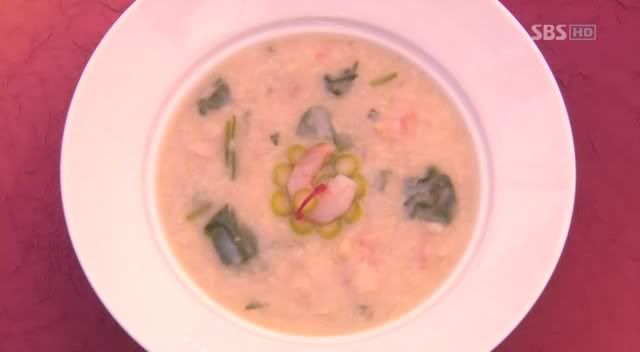
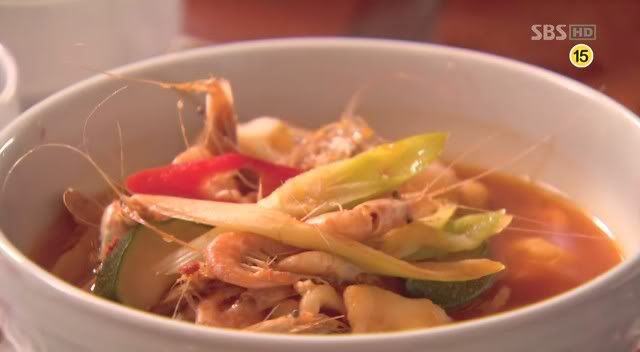
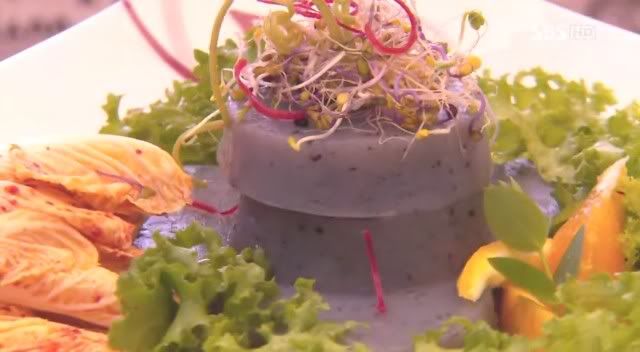

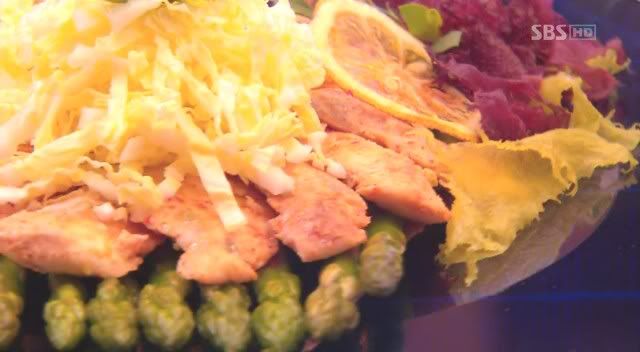


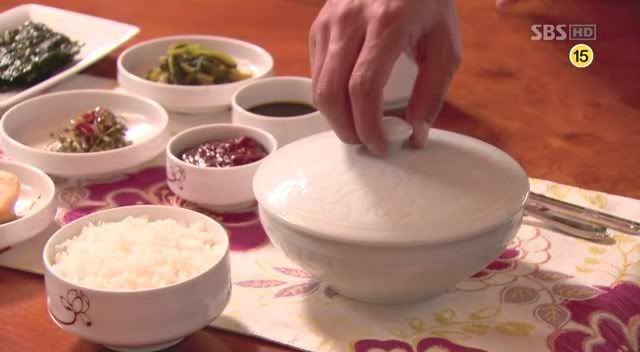
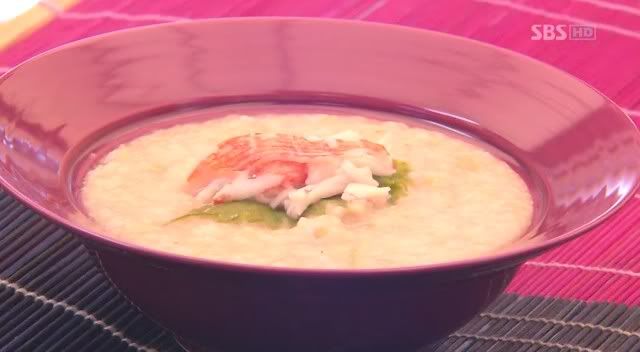
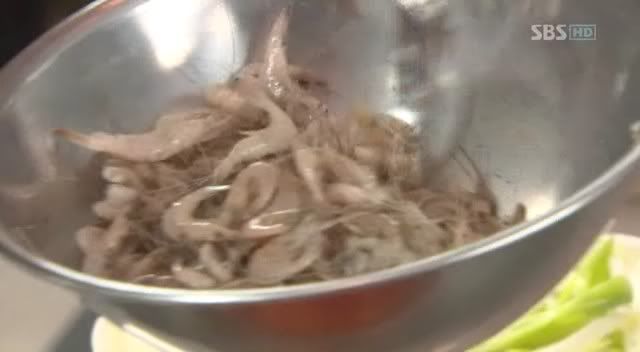
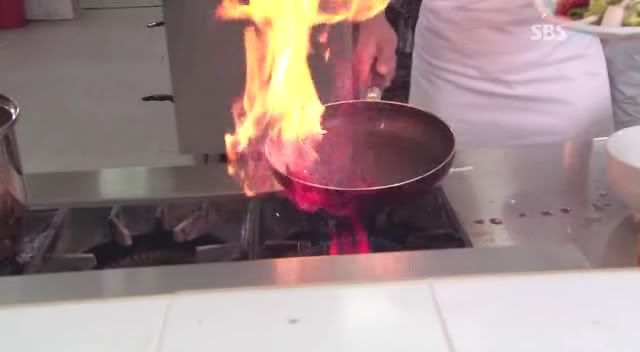
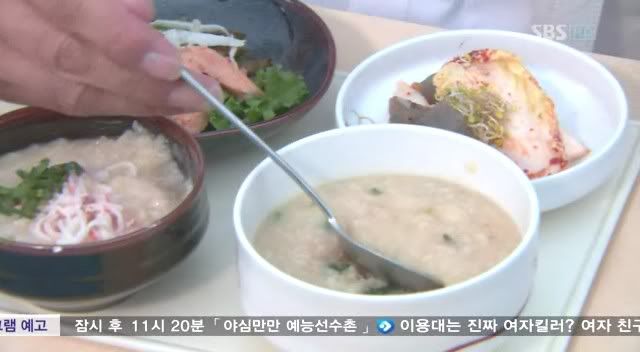
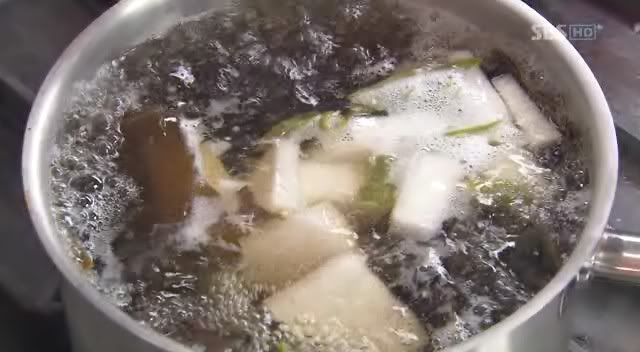

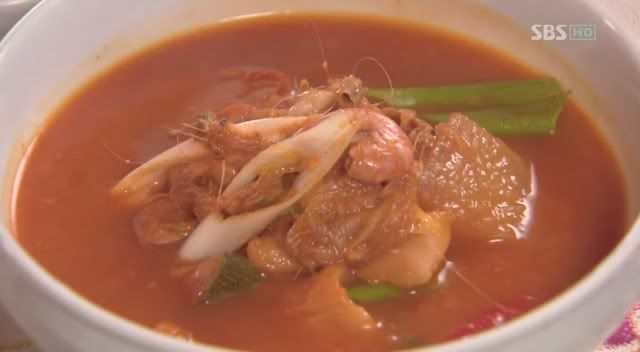
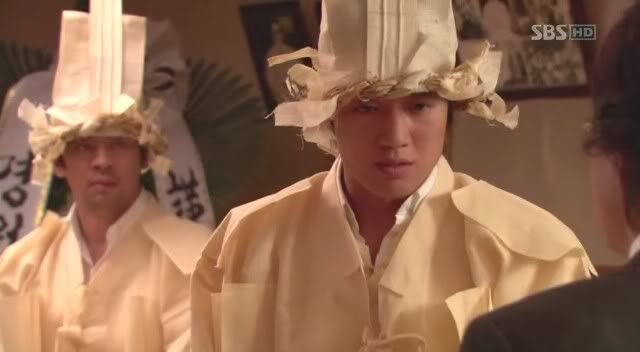
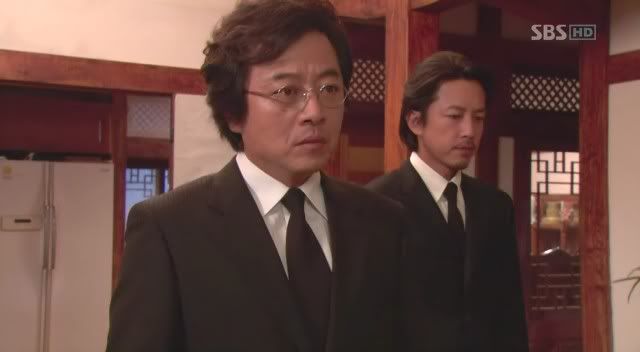

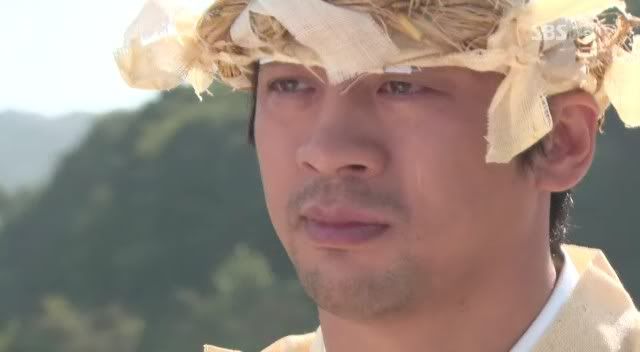
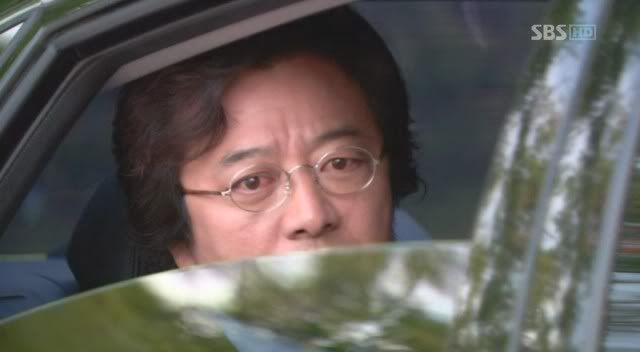
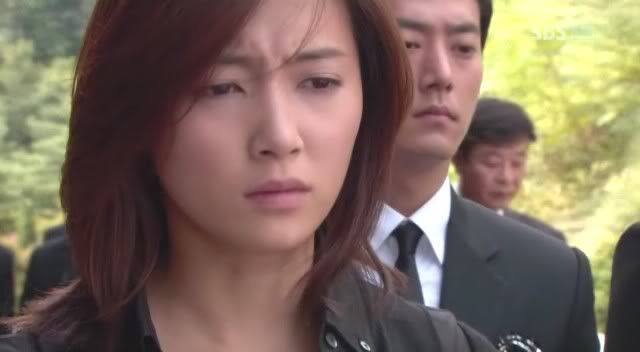
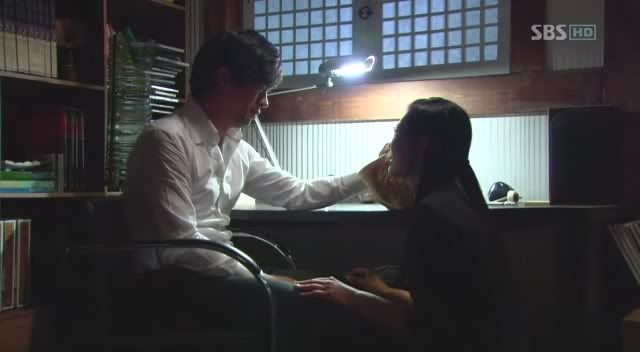
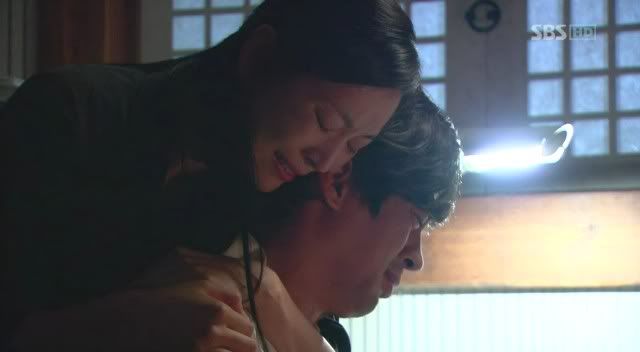
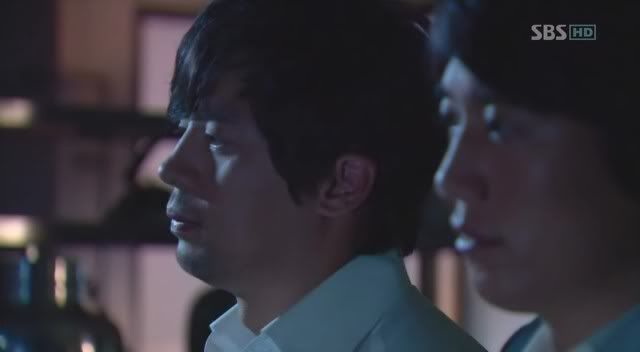
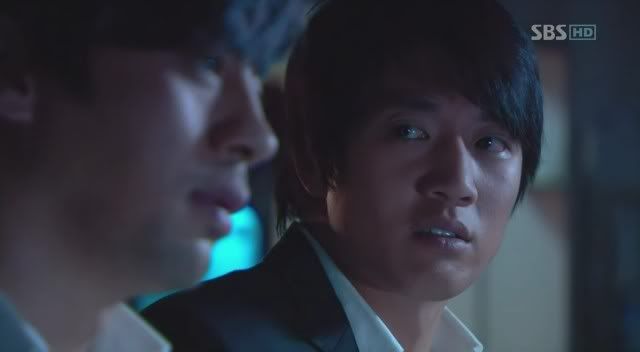
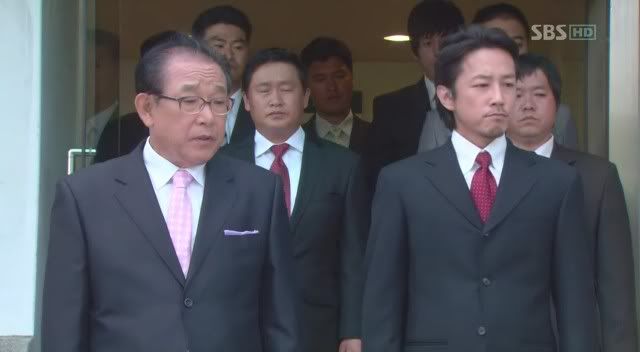
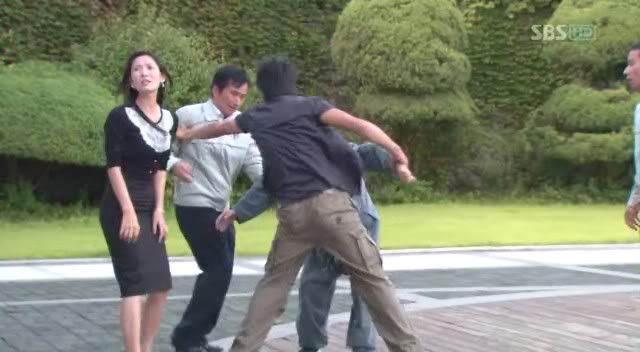
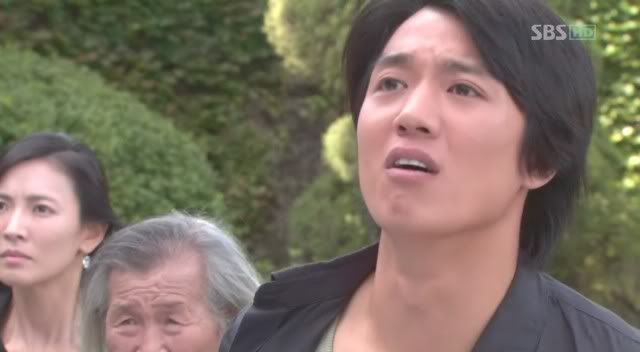
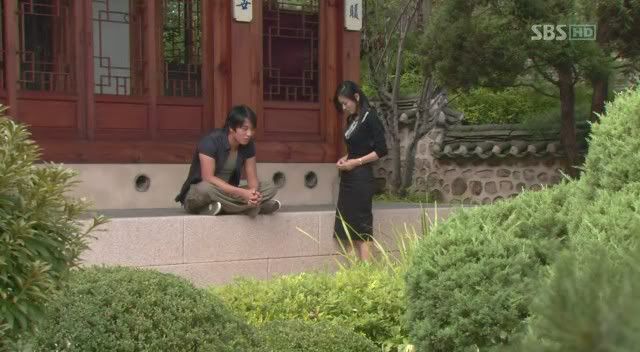
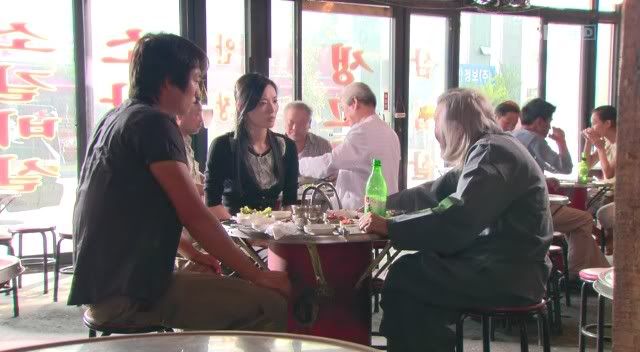
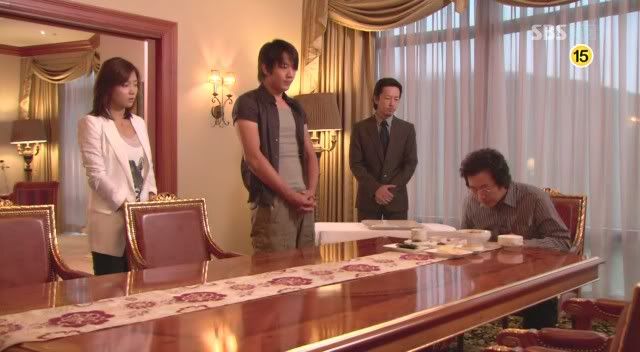
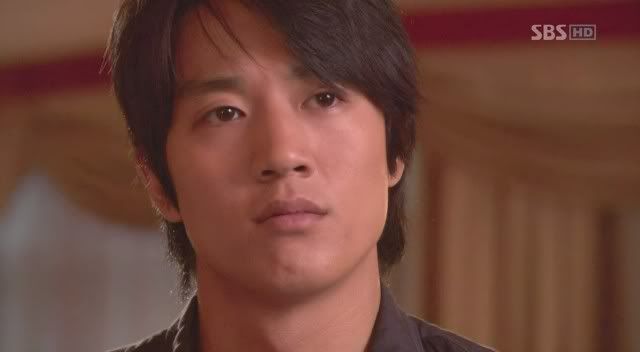
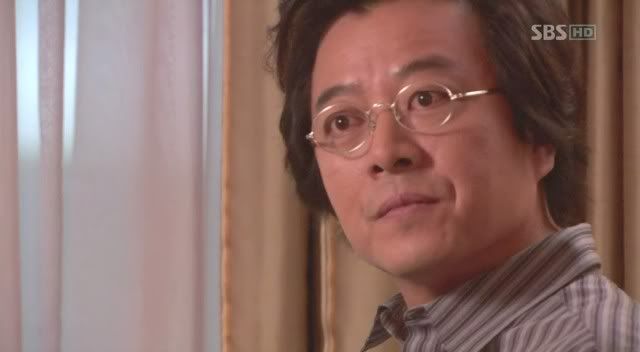
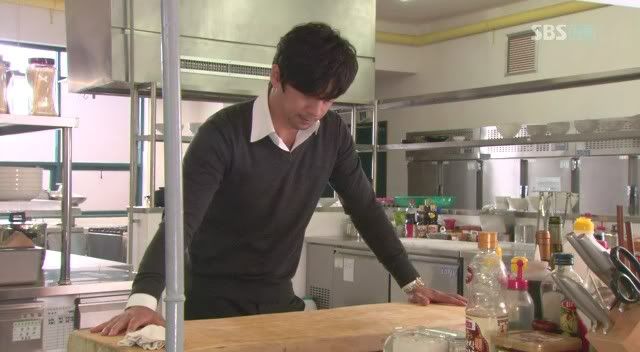
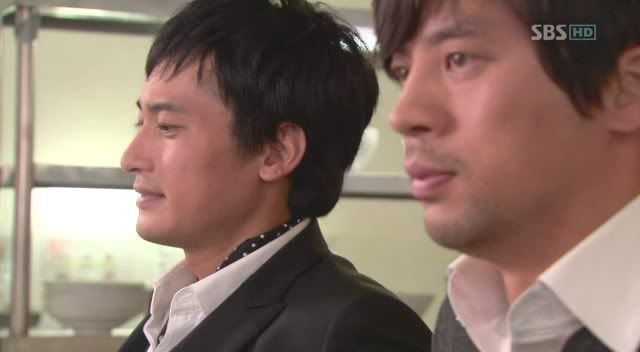
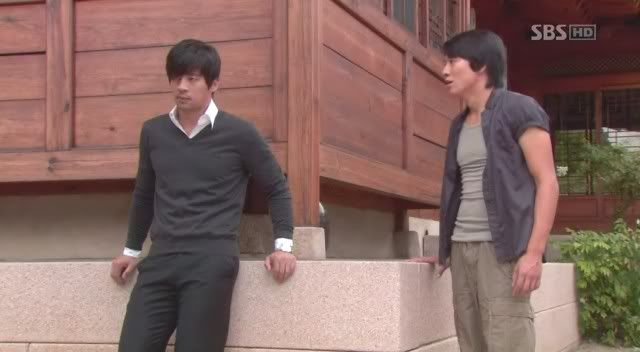
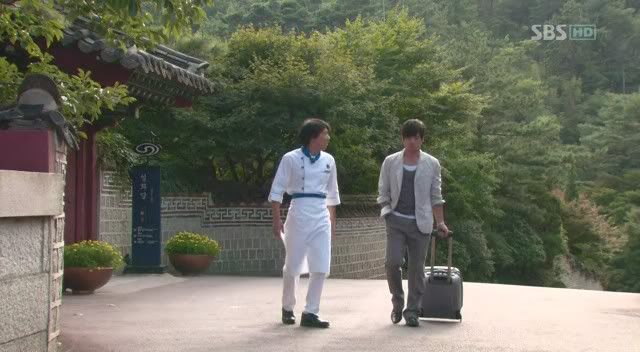
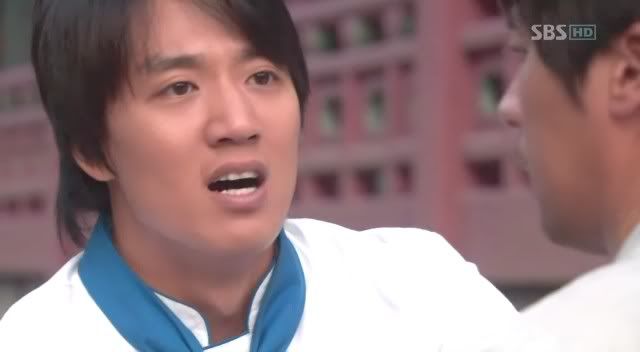
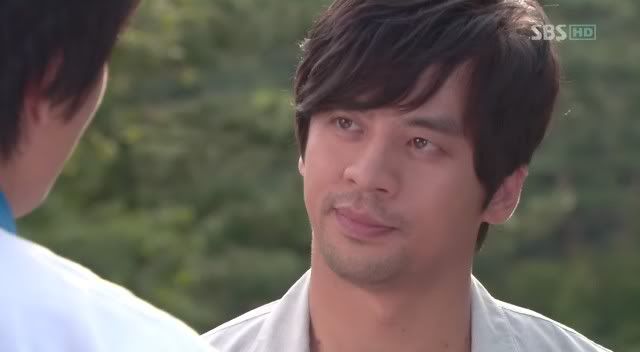
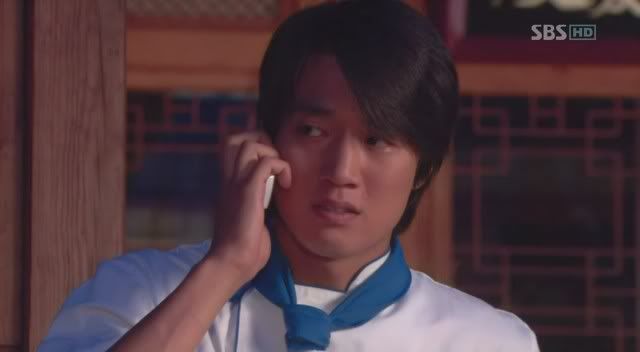
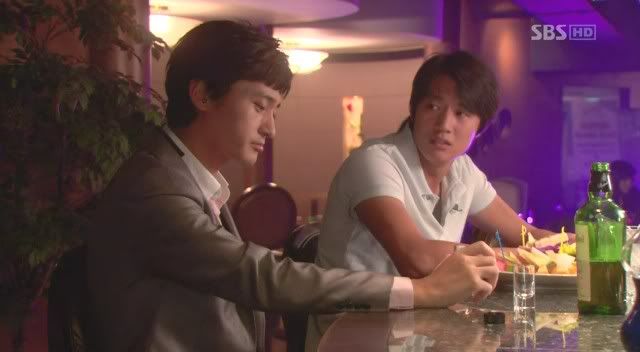
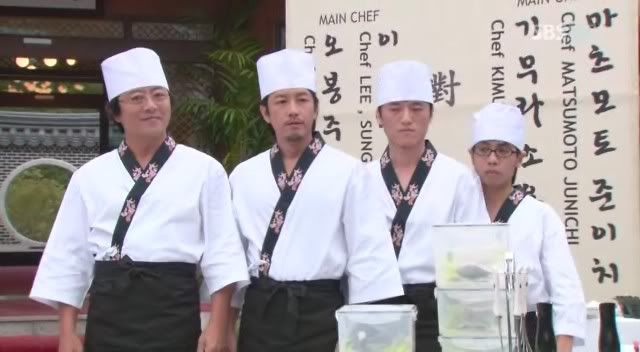
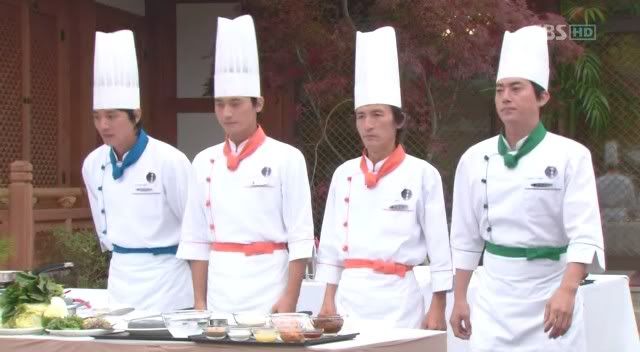

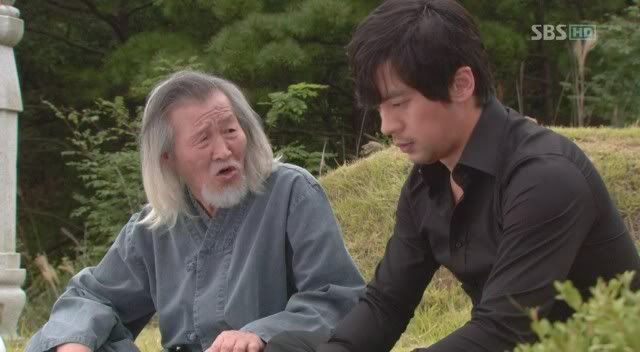


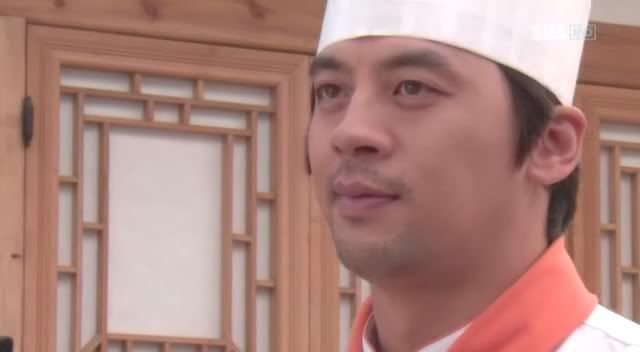
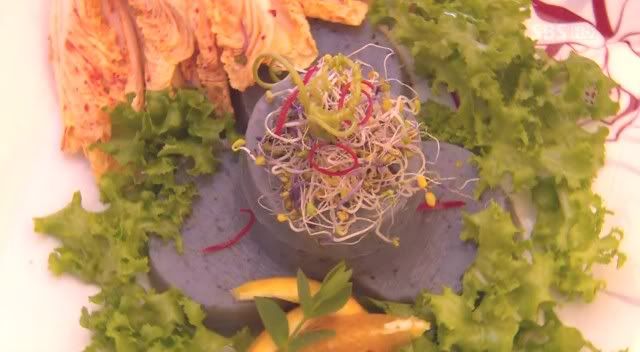

![[Drama Chat] Rookie check-in (2024 version)](https://d263ao8qih4miy.cloudfront.net/wp-content/uploads/2024/05/LovelyRunner0910_14.jpg)







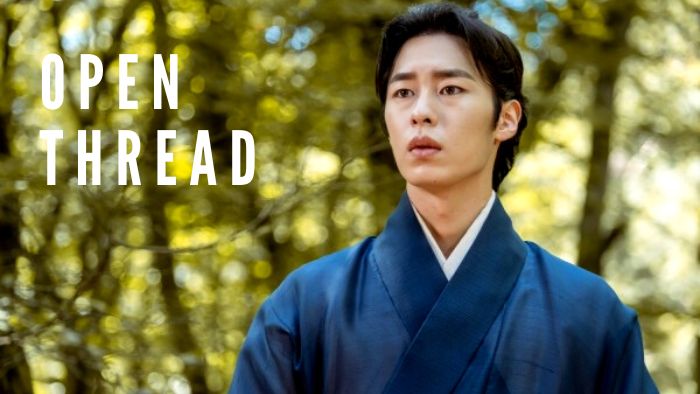
Required fields are marked *
Your email address will not be published. Required fields are marked *
1 Auntiemame
September 22, 2008 at 10:36 PM
It's interesting that the theme of the cooking competitions mirror the issues covered in various kitchen incidents in "Dae Jang Geum". The issue about the cut of beef, the charcoal, the vinegar, the quality of the jang, the pickled shrimp, the use of certain kind of water were all issues in the DJG drama.
Required fields are marked *
2 rave
September 23, 2008 at 2:20 AM
i haven't watch this drama yet, but does these food exist? n if so ... where can i get some?
yummy ...
Required fields are marked *
3 tc
September 23, 2008 at 7:06 AM
The story has no surprises at all....you know the Korean team will end up winning. ;)
As for the food, I wonder they really taste good as they look.
Required fields are marked *
4 Sevenses
September 23, 2008 at 5:07 PM
Another great recap! I felt that the bit with Min Woo was one of the weaker parts in the show (sorry, don't like him). Sung Chan is just waaaaay too good and forgiving in that scene. What's to prevent Min Woo from abandoning ship if he gets offended again?
I wonder what will happen to director Yoon once they win - since Bong Joo is obviously going to win this thing.
Required fields are marked *
5 WhatIsInTheFood
September 24, 2008 at 4:39 PM
You know when they come out with the DVD set for this, they should include some recipes.
Required fields are marked *
6 Sue
October 3, 2008 at 1:20 PM
what i don't like about this last story line is the whole, "if we work together, we can do it!" thing. i found it especially cheesy here. :/ just me?
i also think it's lame that bong joo actually believed min woo, even if he came around in the end. i also thought his entrance in the end was SO predictable that i wasn't even excited to see it happen. lol.
and sung chan has to go through the loss of two fathers! T_T makes me wonder who his biological mom is, and who chef oh's wife is. are they ever mentioned?
Required fields are marked *
7 meow
June 1, 2009 at 7:33 PM
Do you know where i can watch episode 22-24 online with subs? ughh i cant find it anywhere on the net. ..
please and thankyou
Required fields are marked *